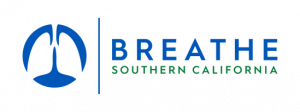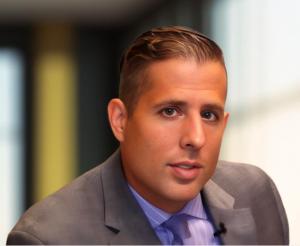
— Marc Carrel
LOS ANGELES, CA, UNITED STATES, January 13, 2025 /EINPresswire.com/ — As wildfires continue to devastate communities across California, Breathe Southern California (Breathe SoCal) emphasizes the urgent need to address the life-threatening health risks posed by wildfire smoke.
Wildfire smoke contains a mixture of fine particulate matter (PM2.5), carbon monoxide, and other harmful toxins and pollutants that can penetrate deep into the lungs, exacerbating conditions such as asthma, COPD, and other respiratory illnesses. Vulnerable populations—including children, the elderly, and individuals with pre-existing lung conditions—are at the highest risk of severe health complications.
Because wildfire smoke contains a mix of chemicals released from the burning of human-made materials the particles in wildfire smoke are potentially much more toxic than from burning vegetation. And it is estimated that wildfire smoke is ten times more toxic than pollution from burning fossil fuels like diesel.
Short term exposure to wildfire smoke can irritate the eyes, throat and lung, which can cause coughing, wheezing, and difficulty breathing. This can result in reduced lung function, increased risk of asthma attacks and exacerbation of other lung diseases like COPD. It can also cause cardiovascular effects such as an increase risk of heart attack, heart failure, and strokes. The impact of long-term exposure to wildfire smoke is unknown, but there is recent research suggesting that long term exposure to wildfire smoke can increase the odds of receiving a dementia diagnosis by 18%.
Breathe Southern California stresses the importance of the following actions for residents to safeguard their health:
• Stay Indoors: Keep windows and doors closed and use high-efficiency air purifiers to reduce indoor pollution levels. Avoid turning on your heat or air conditioning unless you have closed the vents to avoid pulling in outside air. Change your purifier and HVAC filters and make sure to use filters with a higher MERV rating (between 13 and 16) to capture more of the smallest particles in the air.
• Avoid Outdoor Activities: Limit outdoor exposure, especially for sensitive groups (children, seniors, those with existing conditions), until air quality improves. Exercising outdoors poses a greater risk because you will breathe heavier, taking in more air pollution each time you inhale.
• Wear Proper Masks: Use N95 or KN95 masks if outdoor exposure is unavoidable, as they are most effective at filtering out fine particles. Make sure they fit tight against your face.
• Monitor Air Quality: Stay informed through local air quality reports and apps to plan daily activities accordingly. Check the AirNow website for real-time air quality updates by visiting airnow.gov for guidance on how much smoke is in the air. Remember that the score varies during the day because existing fires can grow, new fires can arise, and the winds can change direction and speed.
• Prepare for Evacuations: Have an emergency plan in place, especially for those with respiratory illnesses who may need immediate medical attention. Make sure to pack a week’s worth of your medications. Visit CalFire’s Readyforwildfire.org site to get information on preparing a wildfire action plan.
“This wildfire crisis underscores the urgent need for stronger policies to protect public health,” said Marc Carrel, President and CEO of Breathe Southern California. “Decades of inadequate forest management, coupled with climate change, have created conditions where wildfires have become more frequent and severe. Addressing these systemic issues is essential to preventing future disasters. “There needs to be increased attention to the public health impacts posed by wildfire smoke,” Carrel added. “In 2021, Breathe SoCal sponsored a state law requiring the California Department of Public Health to develop guidelines for counties to prepare for wildfire smoke impacts. More than three years later, those guidelines remain absent.”
For media inquiries, or to schedule an interview with Marc Carrel, please contact:
Nancy Lucas
Phone: 310-702-0199
Email: [email protected]
About Marc Carrel: President and CEO of Breathe Southern California, a nonprofit organization dedicated to promoting clean air and lung health. With over two decades of experience in environmental policy and advocacy, Marc has been a vocal leader in championing initiatives to improve air quality and protect vulnerable communities. He is available to provide expert commentary on the immediate steps residents must take to protect themselves and the broader need for awareness and advocacy during this crisis.
Nancy A Lucas
Breathe Southern California
+1 310-702-0199
email us here
Visit us on social media:
Facebook
X
LinkedIn
Instagram
YouTube
TikTok
Other
Legal Disclaimer:
EIN Presswire provides this news content “as is” without warranty of any kind. We do not accept any responsibility or liability
for the accuracy, content, images, videos, licenses, completeness, legality, or reliability of the information contained in this
article. If you have any complaints or copyright issues related to this article, kindly contact the author above.
![]()
Article originally published on www.einpresswire.com as Breathe Southern California Warns of Immediate and Long Term Health Risks from Wildfire Smoke










